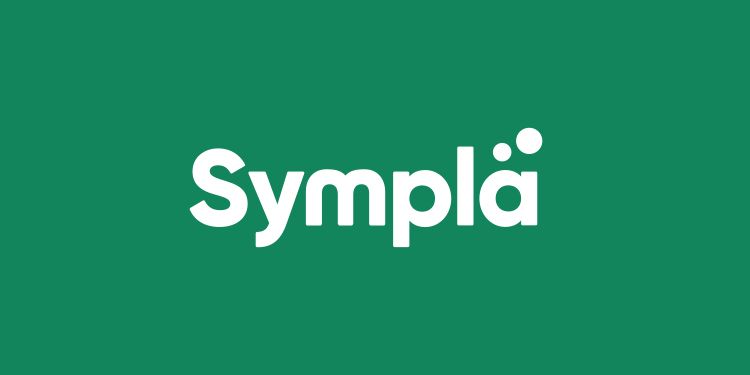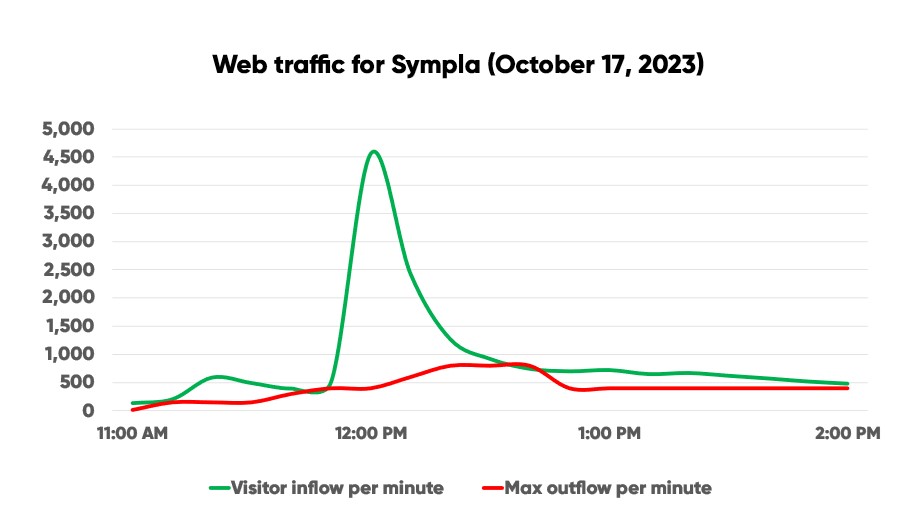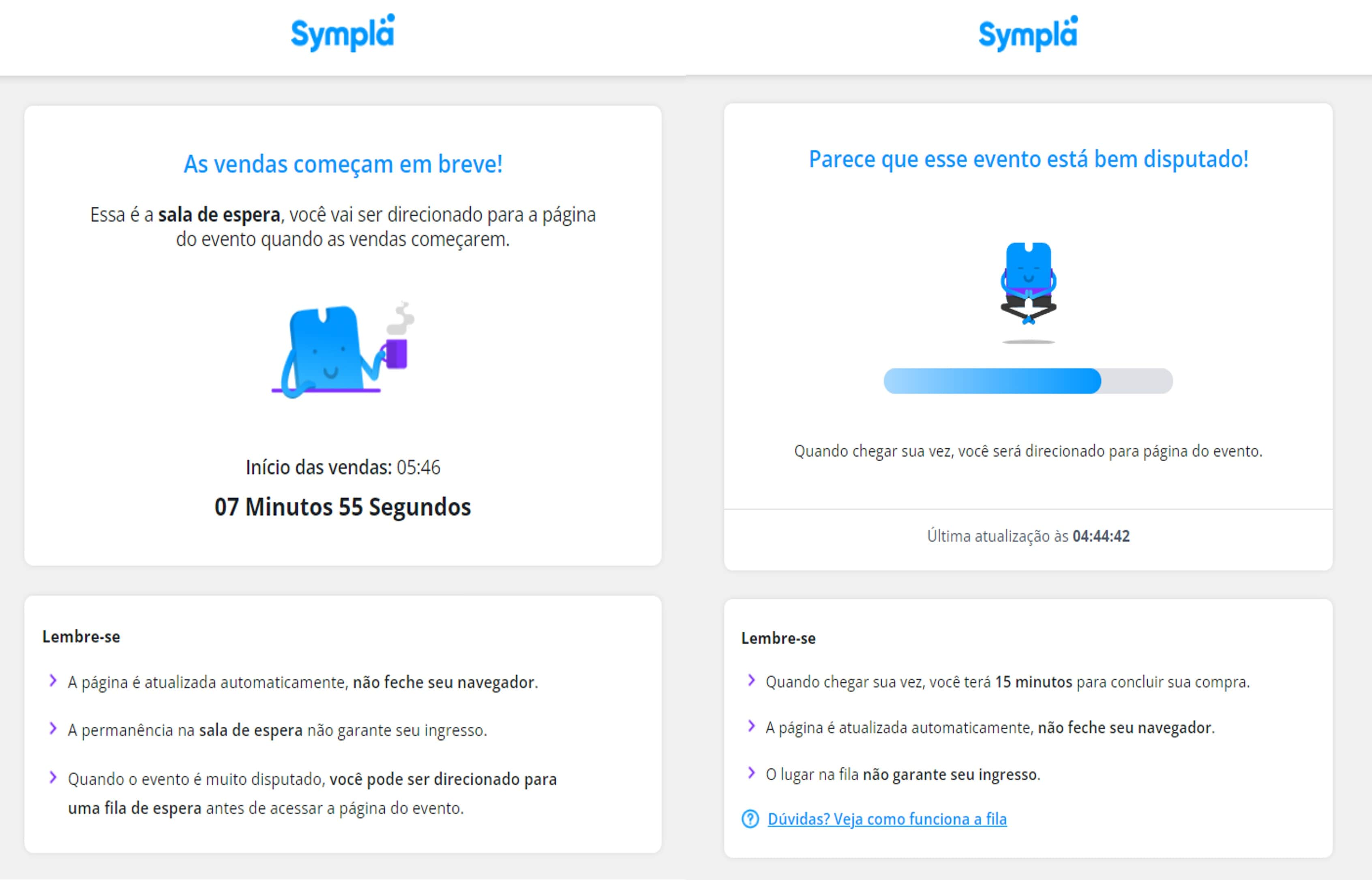How Brazil’s biggest ticketer increased conversions & cut costs with Queue-it

Discover how Sympla, Brazil’s most popular ticketing company, took control of web traffic to deliver a smooth and reliable user experience for millions of ticket buyers and sellers. Plus, find out how Queue-it’s virtual waiting room improved Sympla’s conversion rates and reduced infrastructure costs.
50%
lower scaling costs
by using Queue-it to manage traffic for online ticket sales
100%
uptime
for all onsales, including ones reaching 5-18k visitors per minute
14 million monthly users. 300,000 ticket sellers. Over 110 million tickets sold.
Sympla is the largest ticketing company in Latin America.
But Sympla isn’t just home to Brazil’s biggest festivals and concerts. It also runs ticket sales for local yoga classes, community events, business webinars, and much more. Sympla’s secret to success is their belief that no event is too large or too small for its platform.
Dubbed the “Netflix of events”, Sympla’s mission is straightforward: to simplify people’s connections to unique moments.
In fewer than 10 years, this mission took Sympla from a small startup to Brazil’s go-to destination for live entertainment.
But as Sympla grew, so too did the events they sold tickets for. Major concerts, festivals, and national celebrations brought with them major demand. And this surging demand caused performance issues, unpredictable costs, and a poor experience for Sympla’s ticket sellers and their customers.
We sat down with Mijail Paz, Head of Technology at Sympla, to hear how they used Queue-it to take control of this demand, reduce costs, and improve conversion rates.
Sympla runs ticket sales for events of all shapes and sizes. But as the company grew in popularity, their biggest onsales began attracting traffic spikes that posed a threat to the experience of all sellers and buyers on the platform.
“Over 50,000 people use Sympla every day to buy tickets to all sorts of events, both big and small,” says Paz. “But we also work with some of the biggest events in Brazil, which can bring in between 5,000 and 18,000 users per minute.”
In the past, Paz says, “these major events have taken us completely offline, which was terrible. If the website’s offline, people can’t get their tickets, our sellers can’t sell their tickets, and we can’t help either party.”
Sympla’s popularity and ease-of-use, combined with its accessible pricing structure, has made it the go-to platform for every kind of ticketed event across Brazil. But this adds extra pressure, Paz explains, because so many businesses rely on the platform:
“We’re not just responsible for the platform, we’re also responsible for people’s businesses. Those businesses depend on our platform. They need it to sell their tickets. Our system cannot go down or offline at any time, for any reason.”
When first faced with huge traffic spikes, Sympla did what most companies do: they scaled their infrastructure. While this helped in crisis scenarios, Paz explains, it wasn’t a reliable or long-term solution.
“We found we were just wasting too much money on scaling. It worked okay to scale for these big, planned ticket sales. But when we looked long term, it just wasn’t sustainable. Plus, we couldn’t always predict when traffic spikes would come, such as when an influencer or a news outlet shared a link. Scaling isn’t a complete solution when you can’t predict when or how much traffic will come.”
Faced with the risk of downtime, unpredictable costs, and the pressure of supporting the businesses of thousands of ticket sellers, Sympla decided to take control of traffic by implementing a virtual waiting room.
“We decided to work with Queue-it because they have so much experience in this area,” Paz says. “We ran many tests and consistently found Queue-it was the best solution.”
“Autoscaling doesn’t always react fast enough to ensure we stay online. Plus, it’s very expensive to autoscale every time there’s high traffic. If we did this for every traffic spike, it would cost more than double what we pay for Queue-it. So Queue-it was just the better approach, both in terms of reliability and cost.”
Mijail Paz, Head of Technology

Today, Sympla has Queue-it’s virtual waiting room running in 24/7 Peak Protection mode, meaning the waiting room will kick in if there’s an abnormally high surge in traffic. But they get the most out of Queue-it during their large, scheduled events.
“I’m on the Queue-it dashboards for every big ticket sale, keeping an eye on things and adjusting the outflow where needed,” says Paz. “Being able to control the flow of traffic in real-time is very important. It lets us reduce the number of users if we’re having any issues or increase the outflow to get people through faster if things are looking good.”

“The waiting room creates a more organized experience in high traffic situations. Before Queue-it, we went down several times. Since Queue-it, we’ve had no downtime at all.”
“We can’t share our sellers’ queue pages, but we also create custom queues for big events,” Paz says. “It’s a good way to personalize the user experience and create some excitement before the event.”

Sympla's standard pre-queue (left) and waiting room (right)
When Sympla first implemented the waiting room, they weren’t sure how ticket sellers and buyers would react. But the response to the queue, Paz explains, was overwhelmingly positive, with the waiting room even improving conversion rates.
“People love the experience of being in the queue,” he says. “The sellers in particular just love the queue. It shows how many people are interested in their event, so they can see all the people wanting to get in and how popular it is. They see people posting on social media that they’re in line and can’t wait to get tickets. And this all works to improve the conversion rates on our website. Which is good for us and good for the sellers.”
When asked why he thinks the waiting room improves conversion rates, Paz responds:
“People get put in a queue and they think, ‘Oh wow, this event is popular, it’s going to sell out, I have to buy tickets to it.’ They see that so many other people are interested. I think that’s why we see higher conversion rates in our sales that have queues.”
With traffic issues under control, Paz and the team at Sympla are focused on improving the user experience of the platform and expanding the business beyond Brazil.
“There’s a nice synergy between Sympla and Queue-it,” Paz says. “We focus on the ticket sales, Queue-it focuses on the queues. That’s perfect for us, because it lets us focus on our objectives without worrying about the site going down.”
Sympla’s current core objective, Paz explains, is to bring their innovative platform to new markets and connect ticket sellers with buyers across the globe.
“We’re looking at expanding to different markets like Mexico and Europe, and Queue-it gives us confidence we can handle the traffic in these markets. If you want to go worldwide, you need a platform that operates worldwide. We have this in Queue-it, and that helps us focus on expansion without worrying about the traffic.”